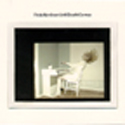
Frida Hyvonen
Until Death Comes
Licking Fingers
Aside from Tori Amos’s Samara-like resurfacing every few years from the well of obscurity and a couple of neo-soul holdouts, the piano has lost favor as the singer/songwriter’s choice for weapon of melody. While inextricably linked to the era of such greats as Elton John, Carole King and Burt Bacharach, it’s borderline depressing that the most commercially viable ingénue for the instrument these days is Vanessa Carlton. Such a bleak future reflects well on Sweden’s Frida Hyvonen’s debut, Until Death Comes, a collection of ballads rife with minor chords and a jaunty simplicity stricken, like all good Scandinavian music, with melancholy.
Despite the deceptively skeletal arrangements, Hyvonen is no slack at the ivories; her songs channel enough nervous and elegant energy to firm up a rhythmic backbone. However, Hyvonen states, “I need silence to be present in the music, I think of it as beauty.” This silence becomes the defining aspect of her sound in the lopsided lilt of “Djuna!,” the stark and sturdy ode to the Big Apple “New York” and her sole foray into full band arrangements, “Come Another Night,” which is to be seen “as a romantic ballad… in an up-beat surrounding. When it ends, you come back to the empty room again.”
Hyvonen’s themes of isolation aren’t limited to her musical phrasing, they’re readily accessible in her lyrics where she continually skewers them in an indistinct world of squirmy romance. “One wonderful thing about [songwriting] is that you have the possibility to create new worlds, and find connections between things you remember, things you vaguely remember, things you vaguely remember someone else talk about, and things you know for a fact,” she says. One has to wonder the percentage of fact in “Once I Was Serene Teenage Child,” a tale of a young girl’s sexual awakening at the hands of an older man. It plays out like a Todd Solondz script condensed into three minutes. Later, she espouses obscure feminism on “The Modern,” in which she makes her male lover pregnant with their child, an undisclosed “word.”
Understandably, Hyvonen has caught fire in her homeland thanks to intelligent pop pathways forged by Jens Lekman, El Perro Del Marr and Jose Gonzalez, among others. Her rapidly expanding fan base is even more bizarrely charged than the characters in her songs, running from teenage girls in need of consolation, to fans of the last generational piano revolution, to men and women between 25 to 35 years-old “telling me how much they would like to be my lover, and why,” she says.
The video for the album’s first single, “The Modern,” shows a nearly feral Hyvonen building a piano from debris found in the woods and playing the song’s chorus before finally immolating her muse on a beach. “It was thrilling and very sad, even a bit dangerous, but it had to be done.” It’s a fitting Nordic end for her fallen comrade and a fine analogy for the first step of her career. With no one else giving a damn about the piano, she’s free to build it from the ground up or to destroy it.
Frida Hyvonen: http://www.fridahyvonen.com












